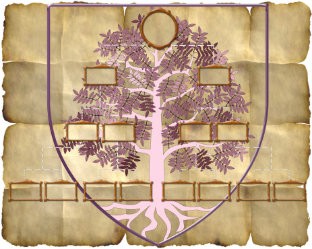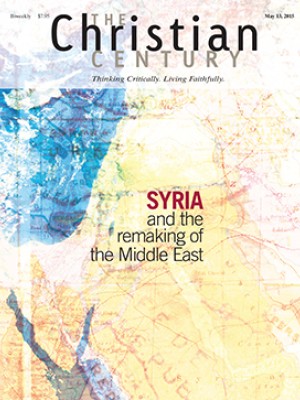Boundary lines
Every time I read Psalm 16, I think about how an individual's life is in large measure the sum total of the influence of others.

In “Two uncles,” Brian Doyle describes how a pair of his uncles were unique and peculiar men who would sit at family gatherings “silent as mountains.” Doyle’s piece made me think about my own uncles. One of them, Uncle Short (yes, he was short), was gone for many years. The story my mother told was that he worked for General Electric in western Pennsylvania and was too busy to come home to visit.
But when I was ten, Uncle Short suddenly appeared. He moved into my grandparents’ house and sat in his room all day reading salacious paperbacks. He was gruff, and he didn’t smell too good when I planted the obligatory kiss on his cheek. But I was always compensated with a 50-cent coin and a “Here, kid. Now beat it.” Decades later I learned that he’d served time for embezzlement in the state penitentiary.
Read our latest issue or browse back issues.
Short was the oldest of eight children; the youngest was Uncle Jack—John Calvin McCormick, my mother’s favorite brother and my namesake. Jack was lively, full of fun, and constantly in trouble. He enlisted in the Marine Corps after Pearl Harbor, and I have a faded photograph of him at 22 in his uniform, walking arm in arm with my mother. It was 1942. In 1944 he was killed in the assault on Saipan, in the Mariana Islands. I’ve thought a lot about him over the years.
In “War without end,” Barbara Wagner Dueholm writes about her father, a World War II veteran who was traumatized by his wartime experience. Dueholm’s mother remembers that, when he returned in 1945, he was a completely different man from the one she married in 1943. It made me wonder how Uncle Jack would have navigated the unspeakable horrors of the war.
There was some closure for me regarding Uncle Jack. I was visiting Presbyterian chaplains at Hawaii military installations, and my guide asked if I’d like to visit the Punch Bowl, the huge military cemetery in Honolulu where the bodies of war dead, recovered from temporary graves all over the South Pacific, were laid to rest. I told him about Uncle Jack.
The officer took me to a building containing records of every burial, and there he was: PFC John Calvin McCormick, August 4, 1920–June 22, 1944, Saipan. I’m sure I’m the only one of his family to have visited his grave site. When we found it, I stood there for a long time.
“The Lord is my chosen portion and my cup; you hold my lot. The boundary lines have fallen for me in pleasant places; I have a goodly heritage.” Every time I read those words from Psalm 16 I think about how parents and family members, incidents and sites fall into place, and how an individual’s life is in large measure the sum total of all these influences. I know that boundary lines don’t fall in pleasant places for everyone all the time. Yet in my case they have. I thank God for the two big families that are my heritage: the uncles and aunts, some loving, some generous, some cranky, one a gruff felon, and one I never knew.







